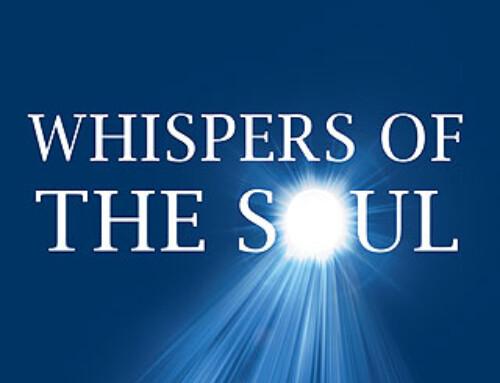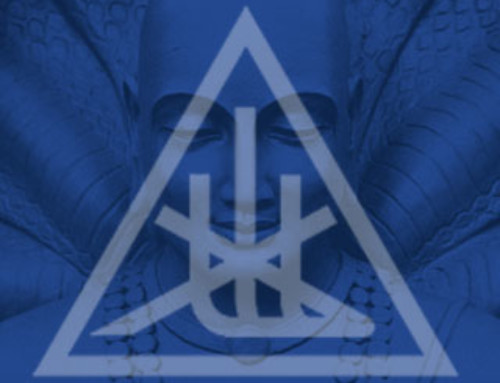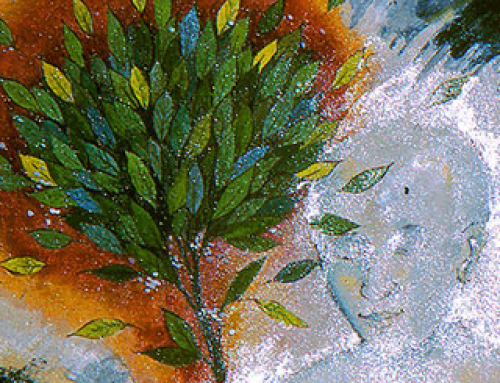At a talk I attended recently, the Tibetan lama said, “in the past, when you were all hippies the word ‘karma’ was on the tips of everyone’s tongue, but now, no-one wants to talk about it”! Over the last few decades, as Buddhism has increasingly shaken off its counter-culture hippy garb and dressed itself in suit and tie for the Western, modern, secular mainstream, the topic of karma has quietly been edging its way to the back of the room. The traditional teachings on karma, with the associated hell realms filled with macabre tortures of various kinds, appears a little like the crazy uncle, who, amidst an otherwise highly esteemed and respected family, needs to be contained, especially on public occasions.
As a more agnostic, “rationalistic” Western Buddhism gains increasing popularity, spearheaded by figures such as Stephen Batchelor, who question the place of doctrines of karma and rebirth in Buddhism at all, others are starting to rise to re-engage with the doctrine of karma and its significance for Buddhism.
One person still happy to talk about the topic of karma and rebirth is Bodo Balsys. In fact, he’s so keen to talk about it, he’s written a book on the topic, titled Karma and the Rebirth of Consciousness.
In this book, Bodo describes some of his own significant concerns about the teachings of karma and rebirth as it is presented in Buddhism today. He critiques what he calls the “medieval” aspects of the Tibetan Buddhist interpretation of karma. Bodo is not purely critical though. Amidst his critique he also presents an in depth, modern esoteric understanding of this complex phenomena. His attempt is sophisticated, thought provoking and refreshing.
Bodo distinguishes between exoteric and esoteric interpretations of karma and gives the basis to an esoteric interpretation. As part of this esoteric interpretation, Bodo presents teachings on energetic dimensions of karma, including significant references to understanding prāṇas (subtle energies) and chakras and their relevance to karmic considerations. This provides a new level of yogic and meditative insight for practitioners interested in non-physical and energetic dimensions of consciousness unfoldment and awakening.
A rather refreshing turn is Bodo’s understanding of karma in somewhat ‘positive’ terms. Rooting out some of the medieval moralism in traditional presentations of karma, Bodo understands it to be governed and propelled by bodhicitta (awakened-compassionate mind). Rather than a retributive force, Bodo explains karma as compassion in action, a force that ultimately directs all sentiencies toward loving realisation.
The most significant aspect of exoteric versions of karma that Bodo confronts in the book is the notion of rebirth into animal forms. Bodo explains this doctrine to be a metaphor given to simple people, yak herders and the like, to encourage them to treat animals well. He claims however that this interpretation was not the “ear-whispered” teachings given to people involved in in-depth spiritual training and awakening. He gives multiple reasons for rejecting animal rebirth, which raise interesting conundrums for such a theory.
The question of rebirth into animal forms and indeed the relationship of humans to animals could be the focus of an entire book. In questioning the validity of the theory, significant questions not just about karma and ethics, but also ontology are raised. For example, what is or isn’t fundamentally different between a human being and an animal? What indeed is it that enables human beings to impose their will so more extensively on themselves and their environment than animals? For better or worse, there is an enormous amount of evidence that suggests a vastly different degree of agency between humans and animals. The extent to which humans can and have manipulated their environment in contrast to animals, demands a more extensive explanation than I think Buddhist or biological world views have to date provided. How is it for example, that, according to Buddhist texts, the human form inherits a Buddha seed, i.e., is capable of becoming a Buddha, but an animal form doesn’t? Where and at what point does the Buddha nature get inserted or withdrawn? An answer to all these questions are not found in the book, though he certainly brings them into question and does elaborate upon them in a latter book titled The I-Concept.
In the last chapter of the book Bodo offers a modern reconstruction of The Jewel Ornament of Liberation by Gampopa, including a reassessment of the karmic ramifications of the ten misdeeds. In this he includes a more socially engaged perspective, taking into considerations some of the far-reaching global diseases of our age, including multi-billionaire earning trans-national corporations, the modern military machine and inhumane policies such as “corporeal punishment”. In this chapter he also attempts to rectify some outdated forms of medieval moralism in regards to issues such as sexual relations. For example, where the traditional text suggests that homosexual and oral sex accrues negative karma, Bodo writes that “sex is sex, is sex, in whatever form it is manifested, and carries within it minimal negative karmic retribution if carried out by consenting couples for mutual loving benefit. Any kind of sexual coercion, manipulation or physical violence associated with it obviously produces attendant karma of a like nature, and thus should be avoided at all costs. It is true that prāṇas are generated through sexuality that may cause sickness and diseases if the sexual expression manifests too frequently, or if carried out without the basis of human love and caring carrying it through.”
The book is certainly a feast, albeit rather chewy at times. It is vital food for individuals seeking a sophisticated metaphysic unwilling to blindly accept illogical formulations of karma and the dogmatic assertion “the text says this and therefore this is true” that often, albeit gently, accompanies them. Bodo brings the discussion of karma to a level that is fitting and applicable to the 21st century in a manner that does not leave spiritually orientated individuals looking like they must have thrown out their minds along with their attachments. Whether in favour or against the ideas Bodo proposes, this book should certainly get people talking about karma again!






Great article, but what about the doctrine of the six realms? If rebirth into animals is not possible, then why have Buddhists given us this doctrine of the six realms where birth into the animal realm is taken as a fiat accompli?
@ SAHA The six samsaric realms can still clearly refer to the evolutionary cycle through which all beings are passing, even where a human-to-animal regressive rebirth might be excluded as an evolutionary possibility within the course of the cycle (or progression).
Are you sure that regressive rebirth into the animal realm is in fact a ‘fait accompli’? If it is, what are the grounds upon which it has become an ‘accomplished fact’, and are they sound?
@MKOVAN Granted that the six samsaric realms can still clearly refer to the evolutionary cycle if “a human-to-animal regressive rebirth might be excluded as an evolutionary possibility”, if the one’s emotional disposition can be considered to symbolise a animal form. But Buddhist thought takes the possibility of a literal rebirth of a human consciousness stream into the animal form as a consequence of certain types of (karmic) volition to be a ‘fait accompli’. Thousands of years of exoteric Buddhist education has ascertained this, plus this doctrine of transmigration has been inherited from the Brahmanical system before them. Albeit the Buddhists adapted it in terms of their concept of “no soul” and then the Six Realm doctrine. This then produced the problem of what exactly is “it” that transmigrates. The Hindus had a definite answer in their atman doctrine, but the Buddhists were awash with theories from their various sects. It was the weakest part of the syllogisms of their entire religion, and where they lost debates with their opponents. There is a sound yogic/psychic interpretation for the doctrine of the Six Reams and human transmigration into any of the various forms of rebirth, in terms of incarnating via the “consciousness zones” associated with various chakras. However, the doctrine cannot really be taken literarily, any more than the Buddhist concept of four Continents of their Cosmology (of which ours—Jambu, with Mt Meru at the centre) can be taken literally. The symbolism however is profound.